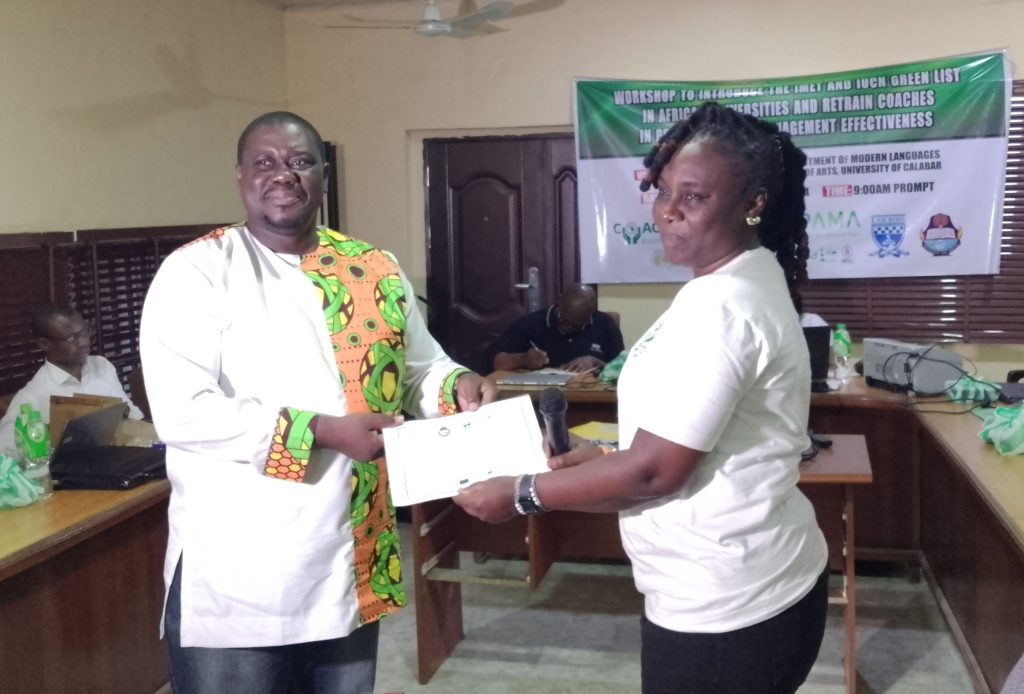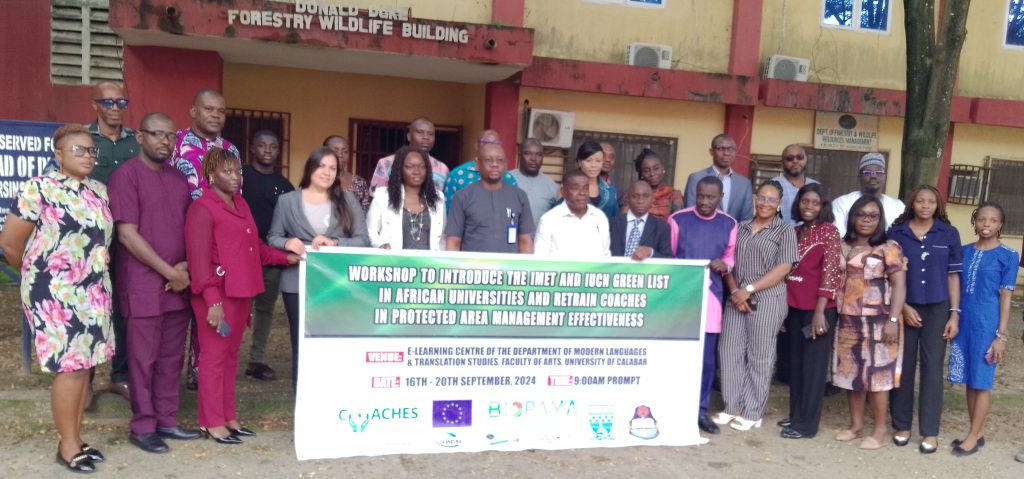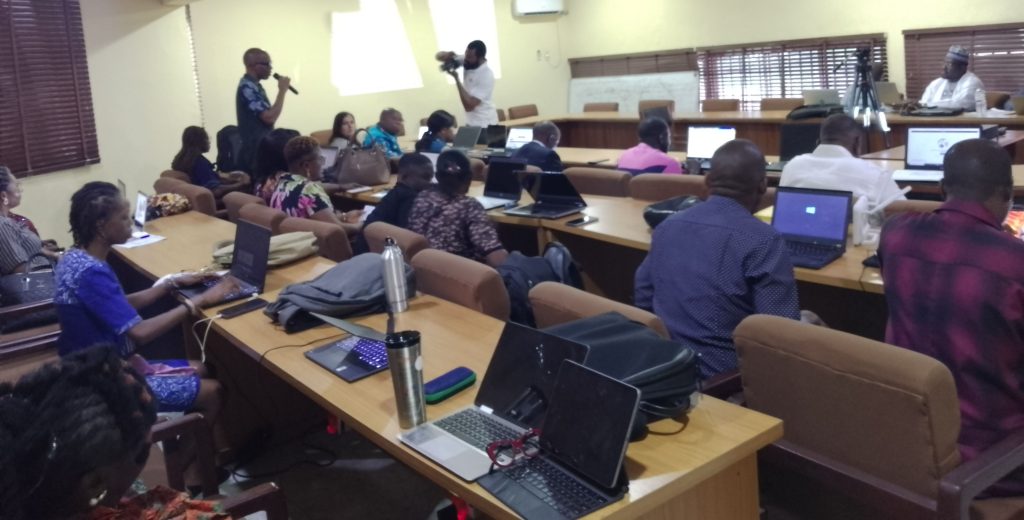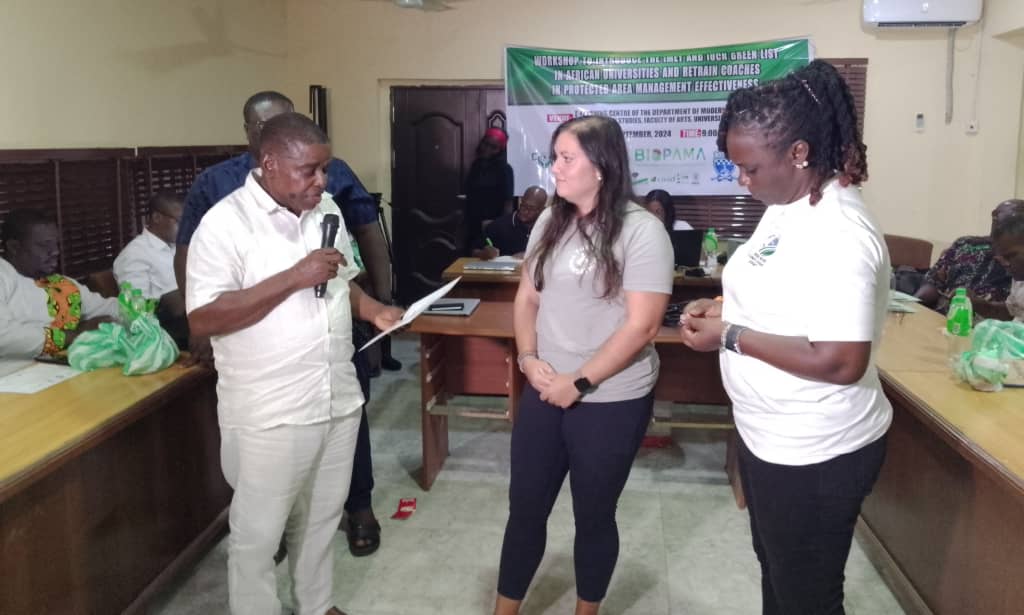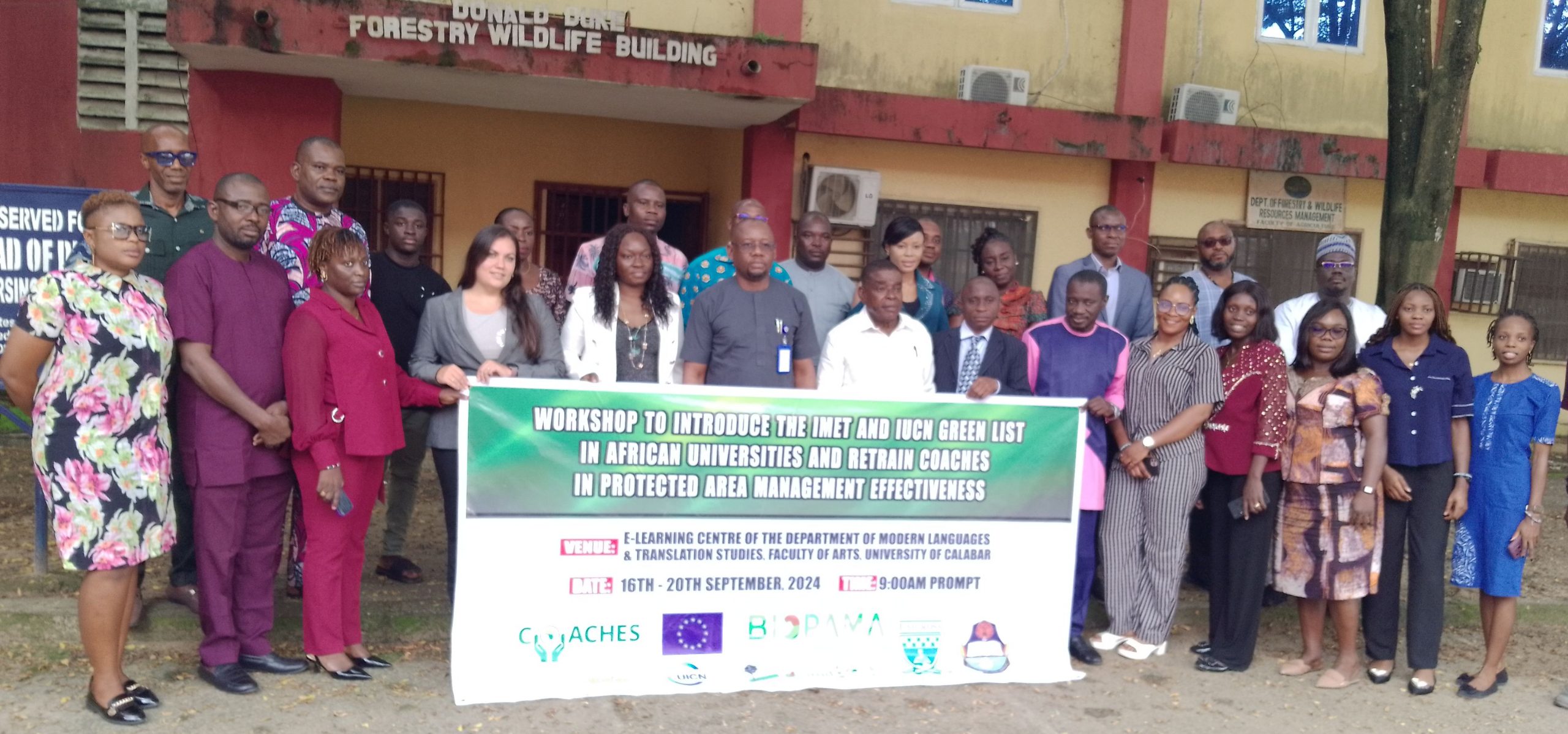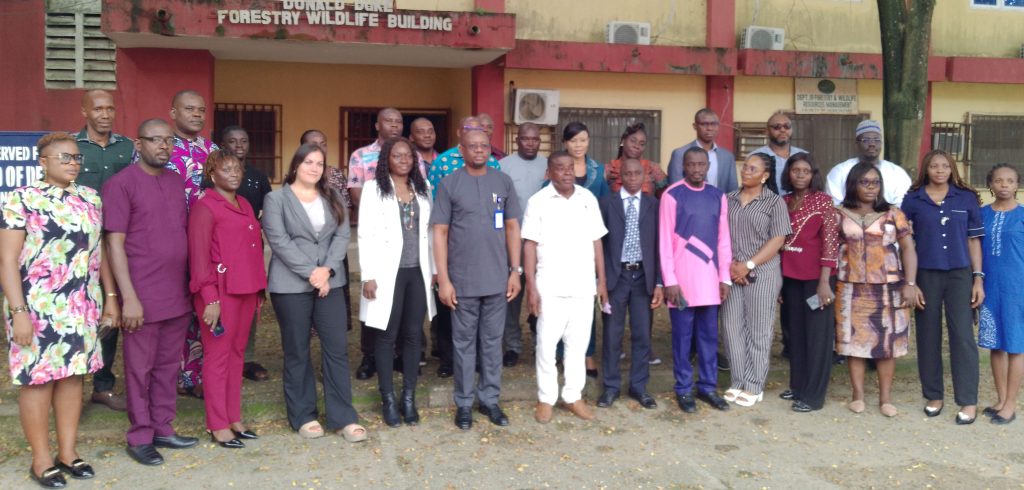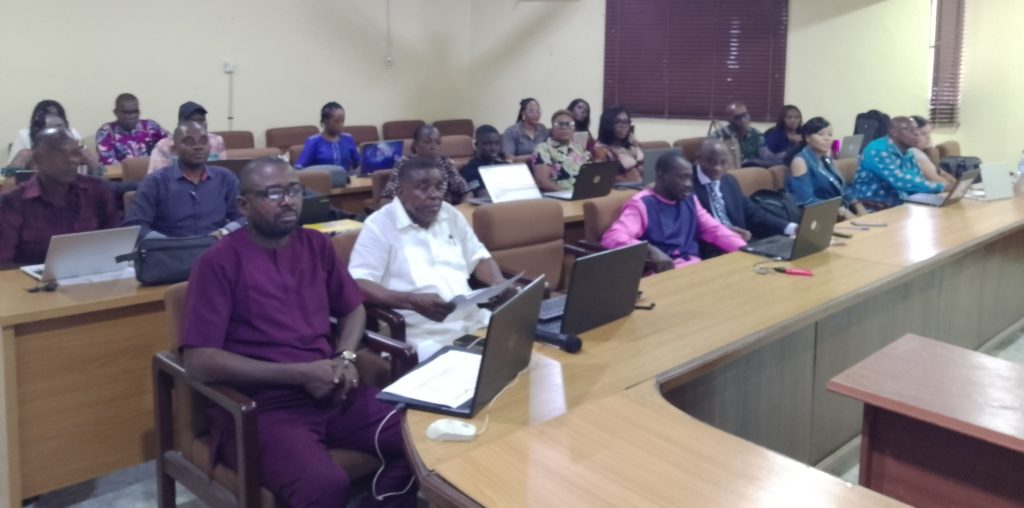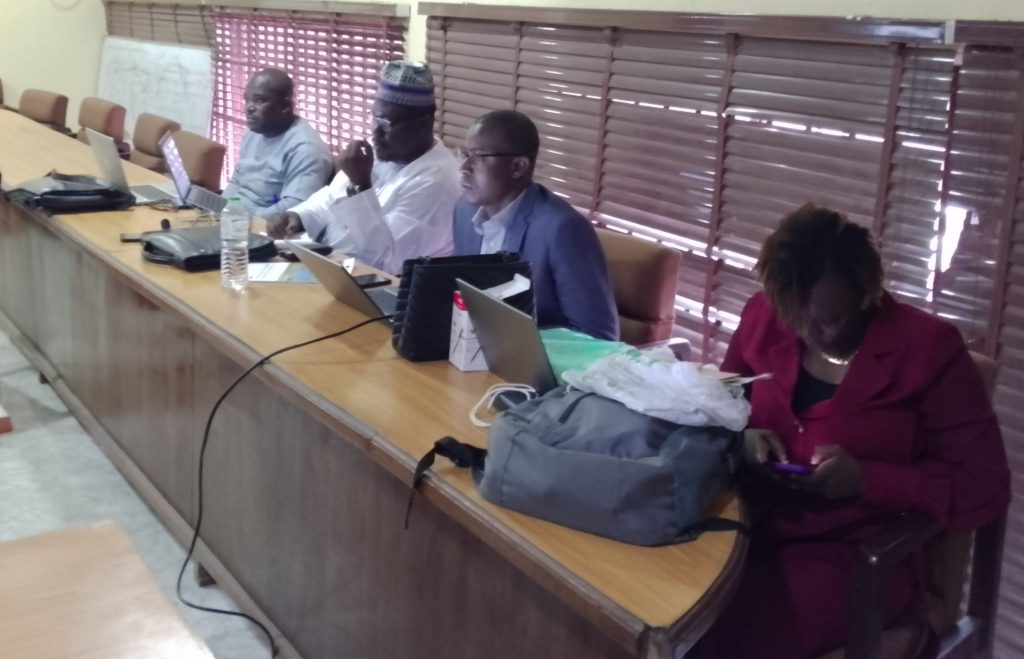By Kelvin Obambon
The Biodiversity and Protected Areas Management (BIOPAMA) Programme in partnership with the African Network of Coaches for the Effective Management of Protected Areas (RACEGAP), has concluded a 5-day training workshop on the introduction and use of the Integrated Management Effectiveness Tool (IMET) in selected universities in Nigeria, West Africa.
BIOPAMA Programme is a 60 million euro initiative of the European Union (EU) and the African, Caribbean and Pacific (ACP) Group of States to improve the long-term conservation and sustainable use of natural resources through better use and monitoring of information and capacity development on management and governance.
The programme is implemented through the International Union for Conservation of Nature (IUCN) and the Joint Research Centre of the European Commission (EC-JRC). It focuses on the 79 ACP countries, which cover a huge diversity of ecological, social and cultural systems.
IMET was developed by the Joint Research Center of the European Union in the context of the BIOPAMA programme to contribute towards improving protected area management effectiveness and meeting conservation targets. The tool concerns the planning, monitoring and evaluation of protected areas and it directly support managers on the field and at national agencies level.
READ ALSO: BIOPAMA commences training workshop on introduction of IMET, IUCN Green List in UNICAL, UNICROSS
The training in Nigeria which took place from the 16th to 20th September, 2024 at the University of Calabar (UNICAL), drew 25 academics and students from both the host institution and the University of Cross River (UNICROSS), who were rigorously tutored on IMET and IUCN Green List by conservation experts from RACEGAP.
According to the facilitator of the workshop, Sonigitu Ekpe, the objective of the training was to introduce IMET into the universities curriculum and enhance the knowledge of academics on the tool which is novel in Nigeria.
“We have four professors from the University of Calabar and the University of Cross River in this training. We have 21 undergraduate and graduate students taking part in this training. They will learn the offline tools. IMET is a tool use to assess the management effectiveness of protected areas. Protected areas are like National Parks, conserved areas and reserved areas. We have various categories,” he said.
Similarly, Ali Coulibaly, IUCN project officer from Dakar, Senegal, explained that the workshop was organized in order to have a set of experts on IMET, adding that it was part of the sustainability plan of the BIOPAMA Programme.
“It is for us to start training students to enable them to work as protected areas managers; this is why we introduce this tool to them and advocate also for it to be included in the curriculum of universities,” Coulibaly said.
Sharing their experiences, some of the participants said the workshop was an eye opener that exposed them to latest tools in assessing and evaluating biodiversity conservation.
Dr Nelson Inyang from the department of geography and environmental science, University of Calabar, said “I have used several tools, but the IMET is one of a kind. It is fully loaded – from the management to the intervention, to the planning and up to the output. The tool is so systematic that you cannot skip an item. It will definitely reflect.
“I will like to thank BIOPAMA and the IUCN for developing this tool to enable us tackle the challenges in our protected areas and to also have a perfect result.”
Another participant, Bridget Kekong, a post graduate student in the department of fisheries and aquatic science, UNICROSS, remarked that the training was exciting, informative and educative.
“Personally I have not had this kind of experience before. I can say that I have learned a lot. I can now use the IMET. I can go to the National Park, take data and know what to do with the data, using the tool. I will like to appeal that this kind of training should be held frequently so that others can learn too,” she said.
The workshop featured a field trip to the Cross River National Park, Akamkpa, where the Integrated Management Effectiveness Tool was used to assess and evaluate some protected areas in the Park; certificates were also presented to participants at the end of the training.
